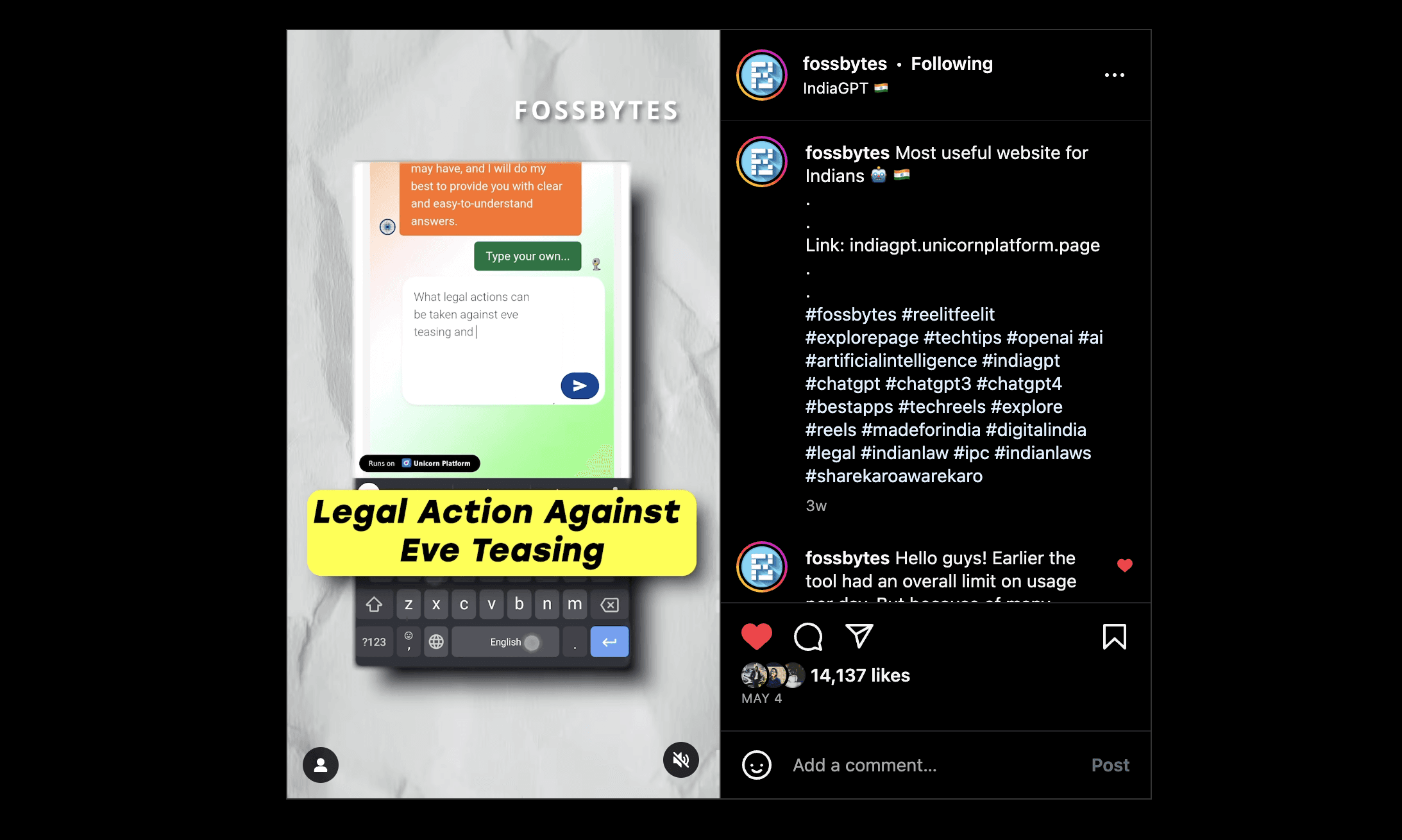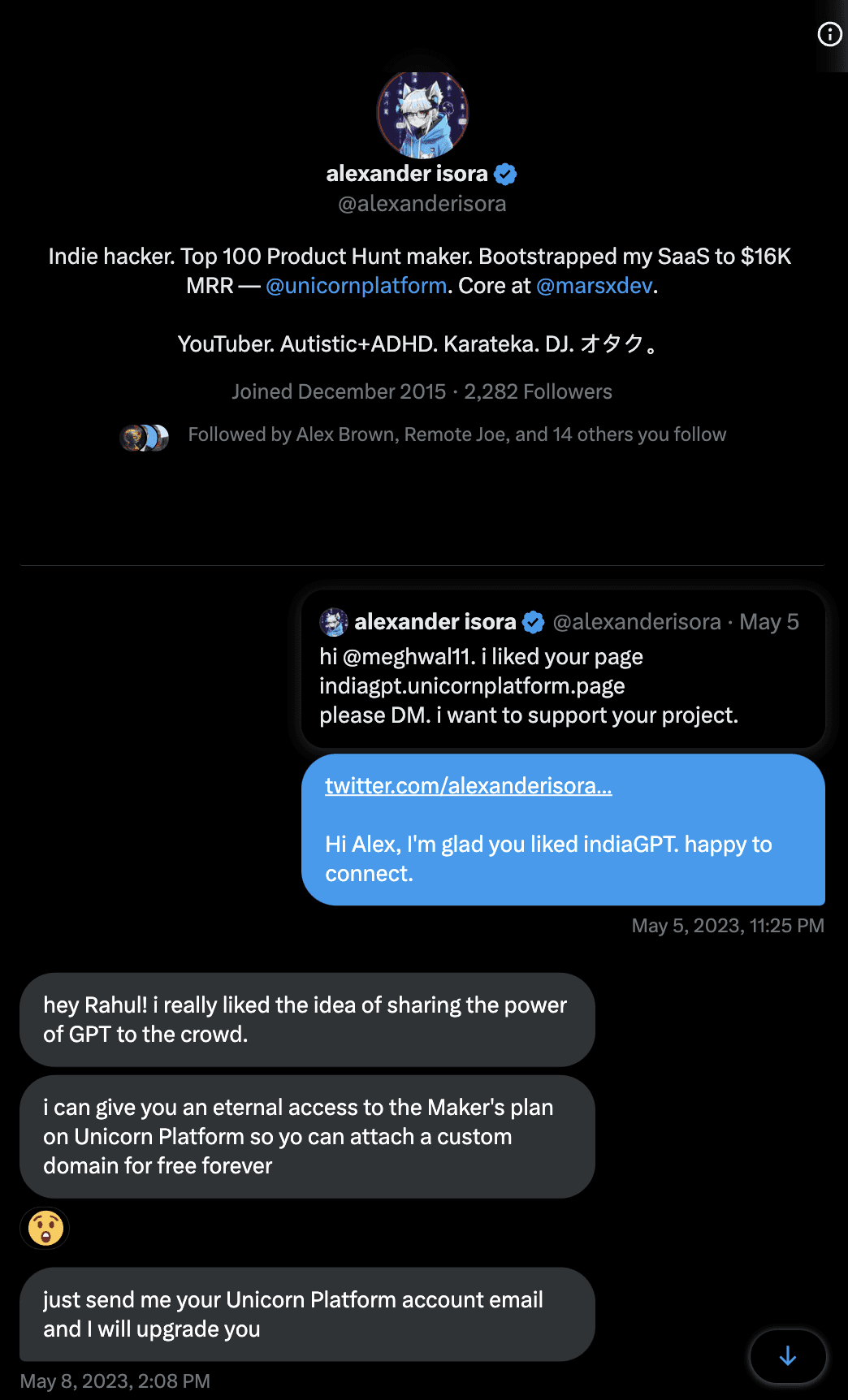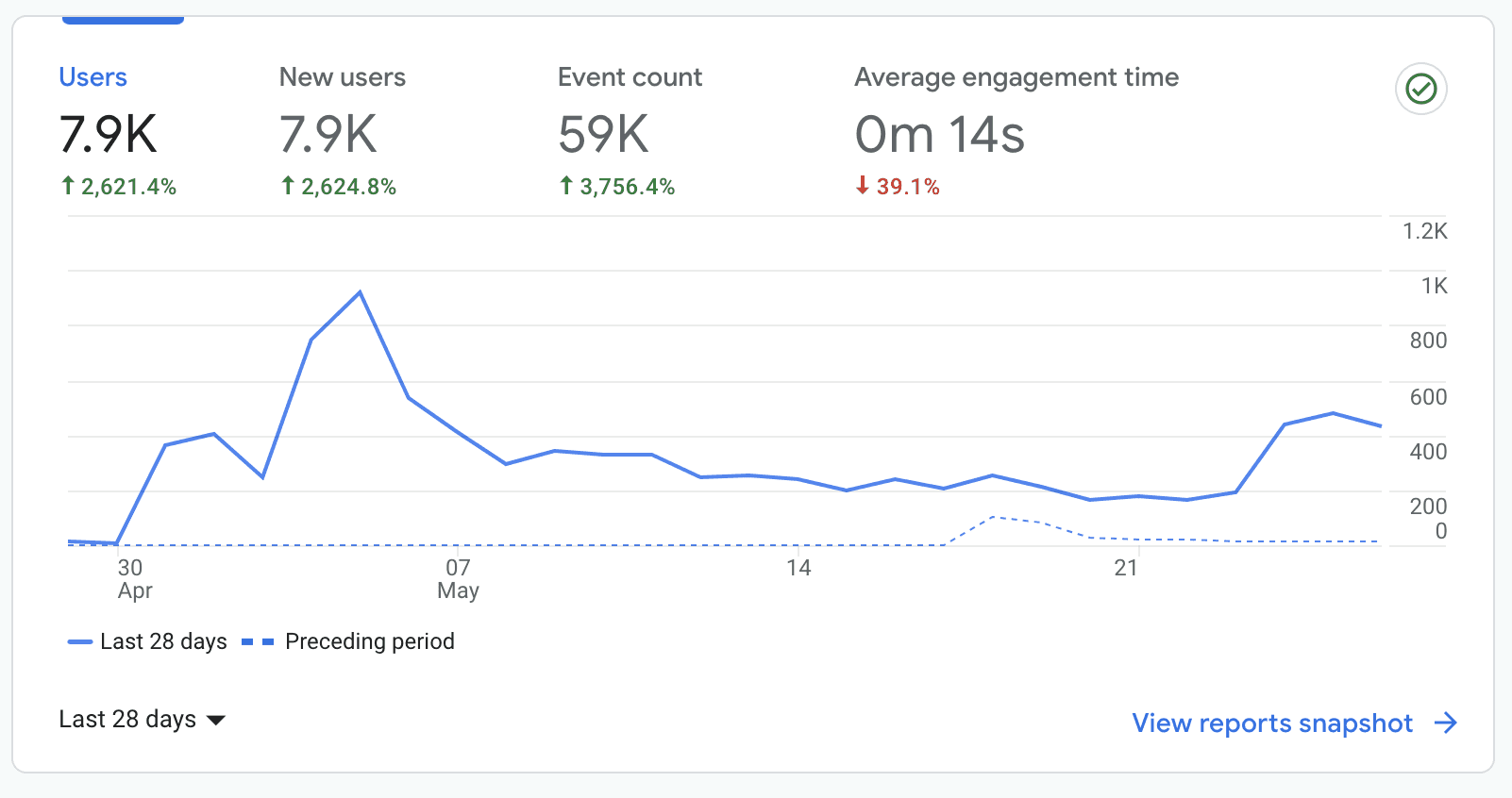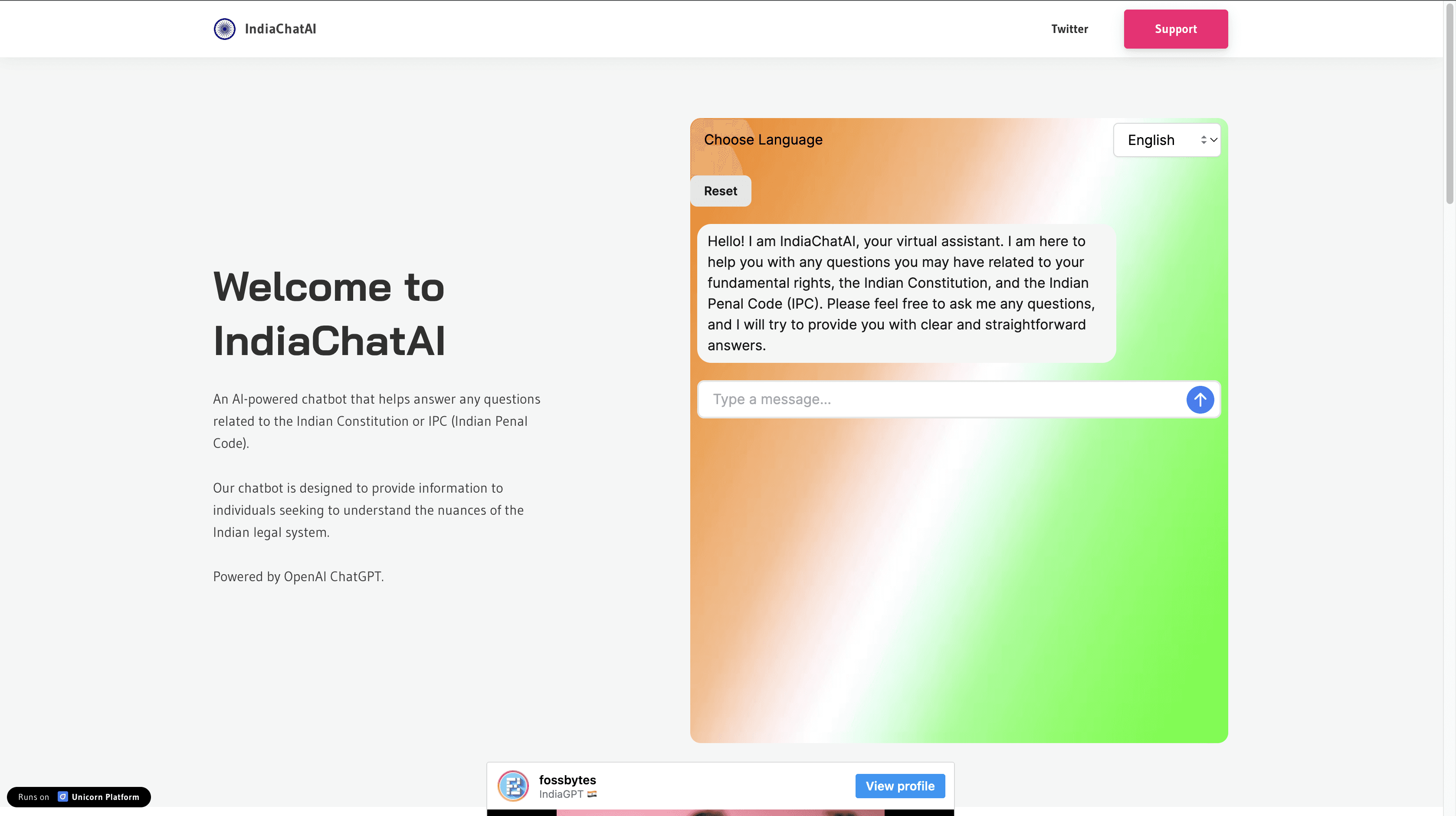Background and Challenge
As a Product Manager, I always sought to merge my passion for artificial intelligence and social welfare. After realizing the scarcity of accessible and comprehensible information on the Indian Constitution and Indian Penal Code (IPC), I set out to create an AI-powered chatbot - IndiaGPT.
The primary challenge was creating a complex language model capable of providing concise, accurate, and understandable information about the Indian legal system, without offering specific legal advice. Moreover, the information had to be accessible for all citizens, regardless of their level of education or background.
Solution
The focus was to ensure the AI could provide accurate and helpful responses while avoiding legal jargon.
The user interface was kept simple and intuitive, with a dedicated section for Frequently Asked Questions (FAQs) to guide the user about the purpose and limitations of the chatbot. It was made clear that while IndiaGPT provides general guidance related to legal matters, users should consult with legal experts for specific legal advice.
To keep the service free for everyone, a per conversation chat limit was introduced. If users reached the limit and wished to continue the chat, they could pay any amount and proceed.
However, I have moved to a a more scalable chatbot solution now(From typebot to a custom one) to keep it free and scalable.
Results
IndiaGPT went viral within weeks of launch, gaining attention from various sections of society, including legal professionals, educators, and the general public. The public appreciated the chatbot's simple yet effective approach to answering queries related to the Indian legal system.The reel, which can be viewed here.

As a result, I was granted lifetime access to the Unicorn Platform, a leading landing page builder, for free by its founder, to support this cause. This gesture was a testament to the positive social impact IndiaGPT was creating and its significance in democratizing legal information.

Google Analytics showed exponential growth in the number of users and engagement levels on the platform. In fact, Google Search results began prominently featuring IndiaGPT, further enhancing its visibility and accessibility. The growth trajectory suggested a promising future for IndiaGPT and its role in simplifying legal jargon for the Indian population.

Lessons Learned
The success of IndiaGPT reinforced my belief in the power of artificial intelligence as a tool for social welfare. It proved that technology, when used effectively, can bridge gaps in information and make it more accessible to all, regardless of their socio-economic status.
While the success of IndiaGPT is heartening, it is crucial to remember that it is designed to be a helper and not a replacement for professional legal advice. The challenge remains to make this distinction clear to all users.
The journey of creating and managing IndiaGPT has been an enriching experience as a Product Manager. It has taught me that with the right mix of technology, empathy, and dedication, we can create products that not only solve problems but also make a significant social impact.
